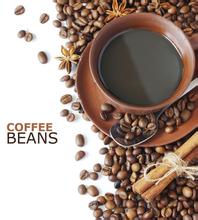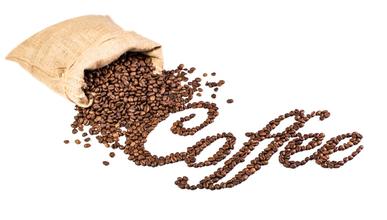Flavor description of coffee beans in Mercedes Manor in El Salvador
Flavor description of coffee beans in Mercedes Manor in El Salvador
Beans taste different according to the region where they grow. The factors that affect the taste are the variety of coffee trees, the soil properties of growth, the climate and altitude of the cultivation garden, the care of picking results, and the process of bean treatment, etc. These elements vary from region to region, while bakers and integrated manufacturers look for the characteristics of each region, so that the comprehensive products have their own unique typical flavor. You can try to pursue the coffee of your dreams. 1. India
The southwestern state of Karnataka is the main producing area, and coffee beans are in the shape of large grains. The coffee beans from the southeastern state of Tamil Nadu, though small, are high-end products of India.
two。 Indonesia
The coffee producing area in Indonesia is mainly limited to Java, Sumatra and Sulawesi. The original species of Robusta accounts for 90% of its coffee production.
A small amount of Arabica native coffee beans produced on the island of Java are sour coffee beans with small particles. The original species of Arabicam on this island was once a world-class product, but in 1920, due to large-scale diseases and insect pests, it was changed to the original species of Robusta. Up to now, its original Robusta coffee beans are second to none in the world, with personalized bitterness, "Java", which is widely used for mixed use.
Mantenin, produced in Sumatra, is one of the few Arabica species with large particles, but poor production management and baking are immediately reflected in the coffee beans, so they will be criticized, but the rich and mellow taste from Toyo, such as syrup-like taste, made it considered the best before the Blue Mountains appeared, and many people still love it and can't put it down. Ankara is a kind of coffee beans with small grains and a little round, which represents the coffee of Indonesia.
Manning, Indonesia is a big coffee producer. Coffee is mainly produced in Java, Sumatra and Sulawi, with ROBUSTA species accounting for 90% of the total production. Manning is one of the few Arbica species. The granule of Mantenin is large, the bean quality is very hard, and the rate of defects in the planting process is on the high side, which is usually selected manually after harvest. If the control process is not strict enough, it is easy to cause a mixture of good and bad quality, and different baking degrees also directly affect the taste. Therefore, it has become a more controversial single product. Before the Blue Mountain was discovered, Manning was regarded as the best coffee because of its rich and mellow taste, not astringent but not sour, mellowness and bitterness can be fully revealed; moderate roasting will leave a moderate sour taste and unique flavor; if the roasting is too shallow, there will be powder and astringency.
In the mid-19th century, El Salvador's original export pillar Indigo (one of the dyes) received a gradual decline in the development of synthetic dyes in Europe, and coffee gradually became the main export product under the guidance of the government.
In 1856, the first 693 bags of coffee beans were shipped to Europe. Europe was El Salvador's chief coffee customer until World War II, which was replaced by the United States after World War II.
In the 1970s, El Salvador produced a record 350000 bags of coffee. With the intensification of the civil war, the coffee industry was in turmoil.
Coffee production in El Salvador was once affected by domestic political instability. In 1992, the parties signed a peace agreement and the civil war was suspended. The coffee industry began to recover.
On the whole, Salvadoran coffee inherits the mild quality of Sino-American coffee, which is soft, slightly sour and has beautiful sweetness. At the same time, it also has its own characteristics: the aromatic taste is slightly sour and very soft; it is pure and has no miscellaneous flavor, and the taste balance is excellent; the smooth feeling like cream chocolate is impressive The lingering feel of the coffee in the mouth gives the coffee a deep taste, with a long aftertaste. The coffee beans from this estate are washed at Mauricio Salaverria's El Divisadero processing plant in Ataco, and then evenly dried in an African elevated trellis with the help of sun and ventilation. Following the career of his parents and grandparents, Mauricio has been associated with coffee since childhood, especially focusing on the characteristics of Salvadoran coffee grown with boutique coffee:
Coffee from El Salvador is a specialty of Central America, where it is light, fragrant, pure and slightly sour.
Flavor: balanced taste and good texture

Important Notice :
前街咖啡 FrontStreet Coffee has moved to new addredd:
FrontStreet Coffee Address: 315,Donghua East Road,GuangZhou
Tel:020 38364473
- Prev

Description of flavor of Indonesian Wahana Mantenin coffee beans as sweet as honey introduction to regional treatment of taste production
Indonesian Manning coffee processing and Sumatran characteristics. I describe these treatments in such detail because it is not clear how the soil and atmosphere and the unusual treatment techniques and the three-stage drying each affect the formation of the characteristics of Lindong and Manning coffee. Only one thing is certain. These treatments occasionally produce excellent coffee at the same time.
- Next

Brazilian Yellow Bourbon Coffee Bean Flavor Description Taste Manor Region Processing Method Grinding Scale Introduction
Brazilian yellow bourbon coffee beans Flavor Description Taste Manor regional processing method Grind scale Introduction Taste characteristics: sweet soft fruit sweet, obvious nutty flavor, balanced soft acidity, bitter slightly clean, rich chocolate aroma and nutty flavor, taste bright and refreshing Bourbon species, native to the Indian Ocean Bourbon Island (now known as Reunion Island), iron pickup (Typica)
Related
- Detailed explanation of Jadeite planting Land in Panamanian Jadeite Manor introduction to the grading system of Jadeite competitive bidding, Red bid, Green bid and Rose Summer
- Story of Coffee planting in Brenka region of Costa Rica Stonehenge Manor anaerobic heavy honey treatment of flavor mouth
- What's on the barrel of Blue Mountain Coffee beans?
- Can American coffee also pull flowers? How to use hot American style to pull out a good-looking pattern?
- Can you make a cold extract with coffee beans? What is the right proportion for cold-extracted coffee formula?
- Indonesian PWN Gold Mandrine Coffee Origin Features Flavor How to Chong? Mandolin coffee is American.
- A brief introduction to the flavor characteristics of Brazilian yellow bourbon coffee beans
- What is the effect of different water quality on the flavor of cold-extracted coffee? What kind of water is best for brewing coffee?
- Why do you think of Rose Summer whenever you mention Panamanian coffee?
- Introduction to the characteristics of authentic blue mountain coffee bean producing areas? What is the CIB Coffee Authority in Jamaica?

